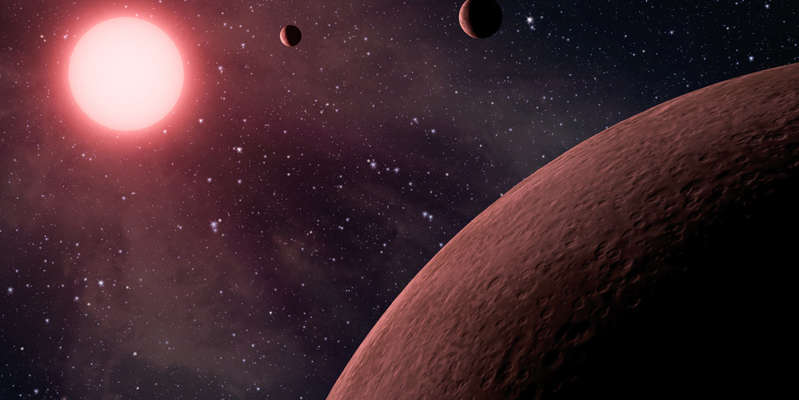
Isotopes found in the atmosphere of an exoplanet for the first time
Scientists from the University of Leiden in the Netherlands have studied the planet TYC 8998-760-1 b, located just over 300 light-years from Earth. Observations have shown that carbon-13 isotopes are present in its atmosphere, reports Nature .
This is the first ever case of the discovery of isotopes on a planet outside the solar system. The researchers emphasized that the discovery provides new insights into the poorly understood process of planet formation. The presence of carbon-13 indicates that TYC 8998-760-1 b originated far from its parent star, in the colder regions of the system.
The planet was discovered in 2019. She became one of the very few whom scientists were able to directly capture.
TYC 8998-760-1 b rotates at a great distance from its star – 160 astronomical units (for comparison, 40 AU between the Sun and Pluto)
The planet is twice as large and 14 times more massive than Jupiter. It is relatively bright on its own because it reflects the light of a star, which is what allowed scientists to detect it.
The researchers assumed that the planet contains carbon. But carbon-13 levels were double what was expected.
“The planet is one hundred and fifty times farther from its parent star than the Earth is from the Sun. At such a great distance, ices with a large amount of carbon-13 may have formed, which leads to an increase in the proportion of this isotope in the atmosphere of the planet today, ”explained astrophysicist Paul Mollier of the Max Planck Institute for Astronomy in Germany.
Scientists hope that in the future they will be able to search for isotopes in the atmospheres of other planets. This will show in what conditions they were formed.
Earlier it became known about the discovery of four teenage planets. They will indicate how our Earth evolved several billion years ago.

